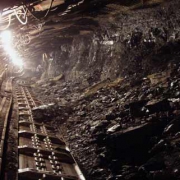We are the Borg – resistance is futile
Many would be buyers are not very nimble when it comes to secure volumes of LNG. No surprise here, as many are behaving like the BORG from Star Trek. We are the BORG – resistance is futile. But is that really a recipe for success?
I just had a phone call with an old friend and we discussed the newest announcement about Trafigura and Sonangol teaming up and trading LNG globally. He was a bit puzzled on how Trafigura pulled off what so many others had failed to do but what’s so surprising about it?
I sometimes have a feeling that the LNG world expects miracles to happen. When a teenager hits the world with his dreams and aspirations, there is a lot of foolishness and exuberance. Nothing wrong with this – it is more than normal for this age. We all had our dreams and we expected the world to beat a path to our door in order to give us a huge welcome, a hug and then the fun gets going.
But reality is different – at my age, you should know. Taking a long hard look into the LNG world, you might come to different conclusions. Because all those – booking capacity at regasification terminals and then sitting tight until good things happen – just behave like our teenager.
Why are most buyers not actively dealing with their LNG problem? Look at who they are and you will see part of the answer.
The old, classical LNG players did not begin their LNG lives with a supply problem. Let’s not forget that LNG has been a solution to a logistical problem for the longest time. LNG is not yet a commodity but it is some sort of stuff that can be bought and sold realistically today. For the longest time, not even this was possible.
As in the past, there was no buying or selling, there was no necessity for an outfit (or department) that does any commercial work on it. The SPA (Sales and Purchase Agreement) dictated it all. Not one single cargo was diverted. What is a trading floor good for in such a world? You are right, no one needs them.
But even if LNG has not yet gone the full way towards a real commodity (I am rather strict with those words) it still has made some evolution towards something that can be used by a trading floor in bespoke deals. No screen trading yet for sure but the portfolio manager would be able to deal with that as this is his ambit.
Origination work is usually going out hunting for deals. In order to get them, originators rely on network building and a fair deal of personal relationships. Nothing wrong with this but why is it not done by most companies in the LNG sphere? The answer is short. Because they never had to and they do nothing else but applying what they know to LNG. That does not work. Why?
One needs to go looking for LNG, where you can realistically expect some available LNG. There is no sense hanging around a seller that does not have any volumes available or that does not want to sell you – or if the realities on the ground are irremediably pitted against you. If most LNG on the planet is spoken for or if you don’t expect to be able to match the terms of the better-known sellers, then there are not too many options. And if there are not many options but you really, really have to pull off some purchase deal (in the end you are saddled with this expensive regasification capacity) then you don’t have the luxury of being picky on where you want to go.
But LNG relationships are not being built at posh conferences or in hotel bars. Your LinkedIn account is not going to help an awful lot either. Those relationships are slowly being built in the producing countries. Its the slow, patient dance towards something that might, in the end, be good for both parties. Its a boots on the ground job for someone not afraid to have many misses.
That goes a bit beyond the scope of origination. Its real hardcore Business Development. You are going to waste a lot of money on seemingly useless trips into exotic countries, you are going to hit a lot of bad beans, your business developer will have weeklong trips with nothing to show for. It’s going to be a mighty money drain.
Originators are part of the trading floor. Their only concern is the bonus sheet at the end of the year. He does not want to dance for a long time – neither does he want too many misses.
But done right its the only thing that works so you need to put someone else in charge. You will say now – wait a minute. I have seen companies setting up offices and heavy infrastructure, running expensive studies and campaigns with nothing to show for. Let’s just remember the E.On adventure in Africa. True.
Two things should be kept in mind still.
Firstly, there never is a guarantee for success. You might be doing all the right moves and still hit a dry hole. That’s just part of the business and if you have a problem with that, get the hell out of it as there will not be a lot of happiness in your life.
But more importantly is the way one does things. You simply cannot go to producing countries and expect others to function like you do or to see things the way you do. They never do and for them, you are a bit like the BORG from Star Trek. I don’t blame them for not wanting to be assimilated – so they resist.
If you build up a large a threatening presence, you create a heavy beast that just sits there and becomes a cumbersome administration when in fact you want to be easy and light-footed. Remember, you will have many misses so when you find out one such miss, you don’t want to be saddled with a large administration to dissolve.
Heavy offices with seemingly permanent staff and missions give the hosts a feeling that good things would happen all alone and they just have to lean back and watch the show. But without any incentive to run for their shirts, the hosts won’t do the things necessary to make the deal happen.
But more important is the attitude with which the seller is being confronted. Although its critically important to show that you are engaged for the long term, cementing yourself into place is never a good thing. Its a delicate dance between two parties trying to make something happen.
And BORG’s are no good Tango dancers. They expect to go somewhere with measurable results and defined metrics when this is to the contrary a very fluid environment where flexibility is more important than anything.
Trafigura pulled the deal with Sonangol because they had the nerve and the patience to make it happen. They probably have gone into years of relationship building and they probably did not have much to show for a really long time but they patiently hammered on. They did it easy and light-footed. They did not allow the BORG to shine through.
In the end, what’s the cost? A good Business Developer will do this for half a million per year. Let’s assume he takes 2 years for getting one deal ready. You make that back on the first spot transaction. If you have longterm regasification capacity to cover, double that, increase it tenfold and it still looks like a steal compared to the disaster of having to pay for an empty terminal.














Leave a Reply
Want to join the discussion?Feel free to contribute!